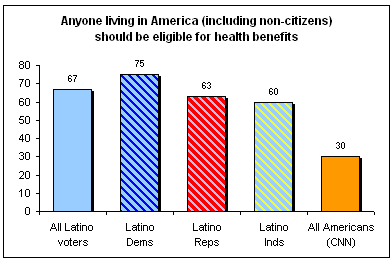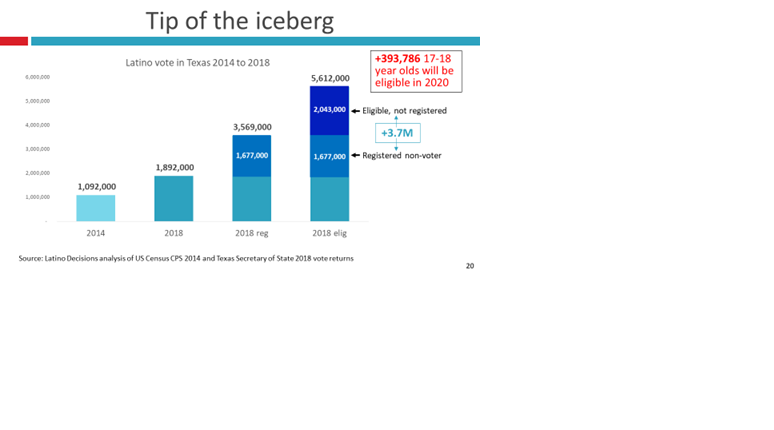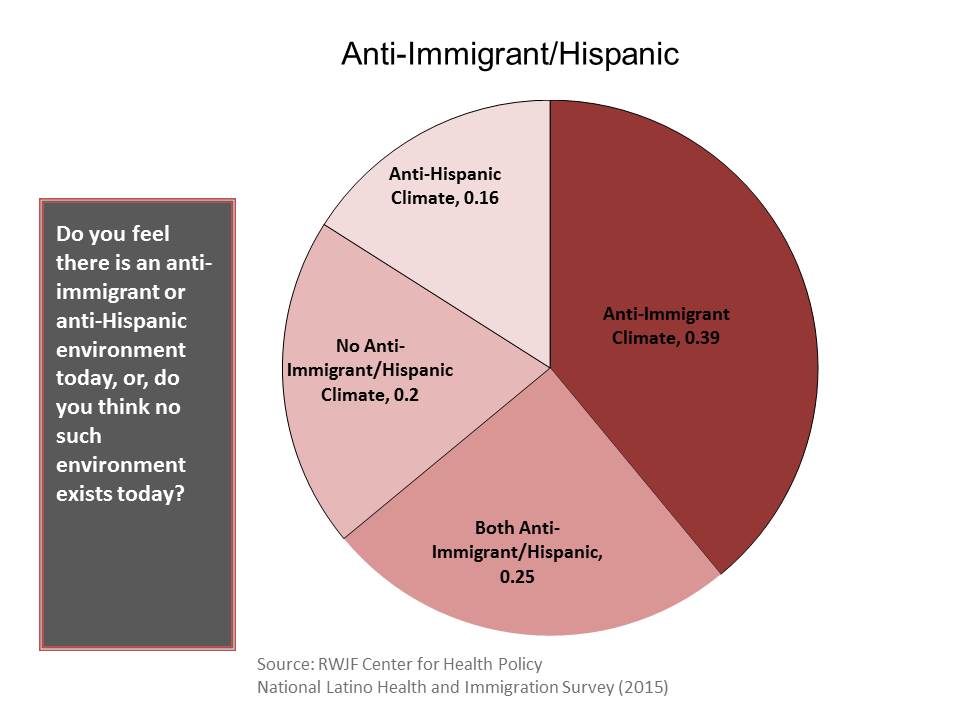A new report released by the Robert Wood Johnson Foundation Center for Health Policy at the University of New Mexico indicates that expansion of coverage is clearly a priority for the Latino community, a population that has the highest uninsured rates in the United States. The report is based on the recent Latino Decisions survey of Latino registered voters and health care. Specifically, a strong majority (61%) of Latinos believe that the federal government should ensure that all people have health insurance, even if it means raising taxes. This is up slightly from the 52% found in a similar Latino Decisions survey conducted in April of this year and also higher than support for universal coverage among the general U.S. population.
Latinos appear to have a broader definition of universal health coverage than Congress, however, as a majority (67%) of Latinos believe that anyone living in the United States should be eligible to buy or receive health care regardless of citizenship status, contradictory to the current bill that restricts coverage to American citizens. The analysis in the RWJF at UNM report shows that partisanship clearly influences support for expansion of coverage among Latinos, with a robust 75% of Latino Democrats supporting expansion compared with 63% among Republicans and 60% among Independents. This analysis is evidence that similar to other policy issues, Latinos are a diverse population with diverse attitudes. This may be reflective of the partisan dynamics that may prevent the non-citizen population from gaining access to health care through the current federal reform efforts, as well as future policies aimed at expanding coverage at both the federal and state levels.
Issues related to immigration have become critical to the health care debate. Importantly, as public debates over the cost of health care reform intensified by midsummer, opponents of health care reform turned to the issue of undocumented immigrants to bolster their claims that insurance reforms would increase the cost of health care. They argued that the public option supported by many Democratic health plans would give illegal immigrants health insurance at the taxpayer’s expense (LA Times.com, 2009; Herszenhorn, 2009). In summary, opponents of illegal immigration see health care as a benefit that undocumented immigrants don’t deserve and taxpayers cannot afford (Wolf, 2008). Some have advanced this argument further by concluding that the prospect of subsidized benefits would raise the incentive for illegal border crossings (LA Times, 2009).The impact of these arguments was clearly apparent during a presidential address in September intended to dispel myths regarding his reform efforts when President Obama clarified that undocumented immigrants would not be included in his health care reform policies. While this speech became more prominently known due to the comments of Congressman Joe Wilson, it also clarified to the nation that universal coverage would be limited to citizens of the United Sates.
This discussion provides some interesting context for interpreting the results from the new Latino Decisions, RWJF Center at UNM, and impreMedia survey results. For example, is Latino support for expanding coverage to non-citizens higher than that of the general public? There is evidence from the report released by the RWJF Center that Latinos are more supportive of health care reform than non-Latinos more generally, and evidence from scholars of Latino politics that Latinos tend to be more supportive of immigration policies aimed at improving the lives of immigrants. Consequently, I would argue that the support for including non-citizens reported here for Latinos are in fact significantly greater than that for non-Latinos. In fact, given that Latinos currently maintain the highest rates of un-insurance among all racial and ethnic groups in the United States, many Latinos likely have family members or friends who do not have access to health coverage- if they themselves are not insured. This may lead Latinos to have a more community-oriented view of health care reform than the general public.
While more research needs to be done to clarify the issues raised here, what is clear is that if health care reform does not address non-citizens there will continue to be a large segment of our population who lacks health insurance. While there is no data that provides a direct number of undocumented immigrants residing in the US, researchers estimate that 11.6 to 11.9 million undocumented immigrants resided in the US by 2008- of those undocumented, 76% are estimated to be Hispanic (Passel and Cohn, 2009). Given that the Pew Hispanic Center estimates that most undocumented adults (59%) had no health insurance during 2007 (Passel et. al, 2009), the decision to restrict access to coverage in the current federal reform efforts may have significant consequences, not just on the health of the non-citizen population, but on the health care system itself. Time will tell whether the administration will be able to tackle the huge task of reforming immigration policy, but this will clearly be a primary issue influencing that policy discussion if and when it is addressed by President Obama. The trends from our survey clearly suggest that the public, at least the Latino population, will hold President Obama and Congress accountable if immigration reform is not addressed prior to the 2010 elections.
References
Herszenhorn, D. (2009). Baucus Bill Would Bar Illegal Immigrants From Insurance Exchanges. The New York Times. New York, The New York Times Company.
Herszenhorn, D. (2009). Illegal Immigrants and the Health Care Legislation. New York Times. New York, The New York TImes Company.
LA Times (2009). “Illegal Immigrants Debate Could Potentially Block Reform.” latimes.com/la-ed-health 17 2009aug17,0,3225799.story
Passel, J., Cohn, D. (April, 2009). A Portrait of Unauthorized Immigrants in the United States. Washington DC: Pew Hispanic Center. http://pewhispanic.org/reports/report.php?ReportID=107.
Wolf, R. (2009). Rising Health Care Costs Put Focus in Migrants. USA Today.



